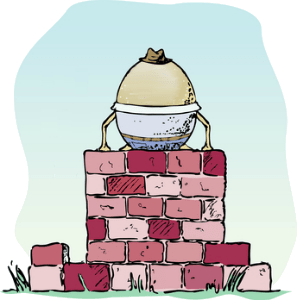Today, we’re going to explore how focusing on one sense at a time can help create vivid, memorable poems that really come alive for the reader.

Lesson Objective
Students will learn to write descriptive poems focusing on each of the five senses: sight, sound, smell, taste, and touch.
Materials Needed
- Paper and pencils
- Optional: objects related to different senses (e.g., textured items, scented items, pictures, audio clips, taste-safe food items)
Lesson Plan
Introduction (5 minutes):
Explain that poetry isn’t just about rhyming words – it’s about creating experiences for the reader. One powerful way to do this is by focusing on sensory details.
Sensory Warm-up (10 minutes):
- Have students close their eyes and focus on what they can hear. Ask them to jot down a few words describing the sounds.
- Repeat this exercise for smell (what can they smell in the classroom?), touch (what textures can they feel?), and sight (have them open their eyes and describe what they see).
- For taste, you can either have students imagine their favorite food or, if possible, provide a simple snack for them to taste and describe.
Examples of Sensory Poems (10 minutes):
Share examples of poems that focus strongly on one sense. Here’s a simple example for each:
Sight
“The sun, a golden disc,
Paints the sky in pastel hues,
Clouds like cotton candy
Float in seas of blue.”
Sound
“Leaves rustle and whisper,
Wind chimes sing their song,
A dog’s distant barking
Echoes all day long.”
Smell
“Fresh bread from the bakery,
Cinnamon and spice,
Coffee brewing slowly,
Oh, doesn’t that smell nice?”
Taste
“Tangy lemon zest,
Sweet honey on my tongue,
Spicy pepper flakes,
Flavors have just begun.”
Touch
“Soft fur of a kitten,
Rough bark on a tree,
Cool water on my skin,
So many things to feel and see.”
Writing Time (20 minutes)
- Assign each student a sense (or let them choose).
- Instruct them to write a short poem (4-8 lines) focusing primarily on their assigned sense.
- Encourage them to use specific, concrete details rather than general descriptions.
Sharing and Feedback (10 minutes)
Have volunteers read their poems aloud. Ask the class to guess which sense the poem is focusing on (it should be obvious from the descriptive language used).
Extension Activity
For homework or extra class time, challenge students to write a poem that incorporates all five senses.
Tips for Success
- Encourage students to use similes and metaphors to make their sensory descriptions more vivid.
- Remind them that while the focus is on one sense, they can still mention others if it enhances the poem.
- For younger students, you might want to provide a simple template or structure for their poems.
A Personal Note
I’ve found that sensory poems are a great way to help kids connect with the world around them and express their experiences in creative ways. They are also a terrific precursor to introducing the concept of imagery, which can help students improve their poems and stories by evoking the senses in their writing.
Sensory poetry is a fantastic tool for developing descriptive language skills and encouraging keen observation. By focusing on one sense at a time, students can create rich, evocative poems that really resonate with readers. Remember, the goal is to make the reader feel like they’re experiencing the poem, not just reading it.
Happy writing, everyone!
- Enhancing ESL Fluency Through Children’s Poetry - July 24, 2024
- Sensory Poetry Lesson Plan: Bringing Poems to Life Through the Five Senses - July 17, 2024
- The Power of Rhythm: How Poetic Meter Enhances Memory and Recall - July 10, 2024


